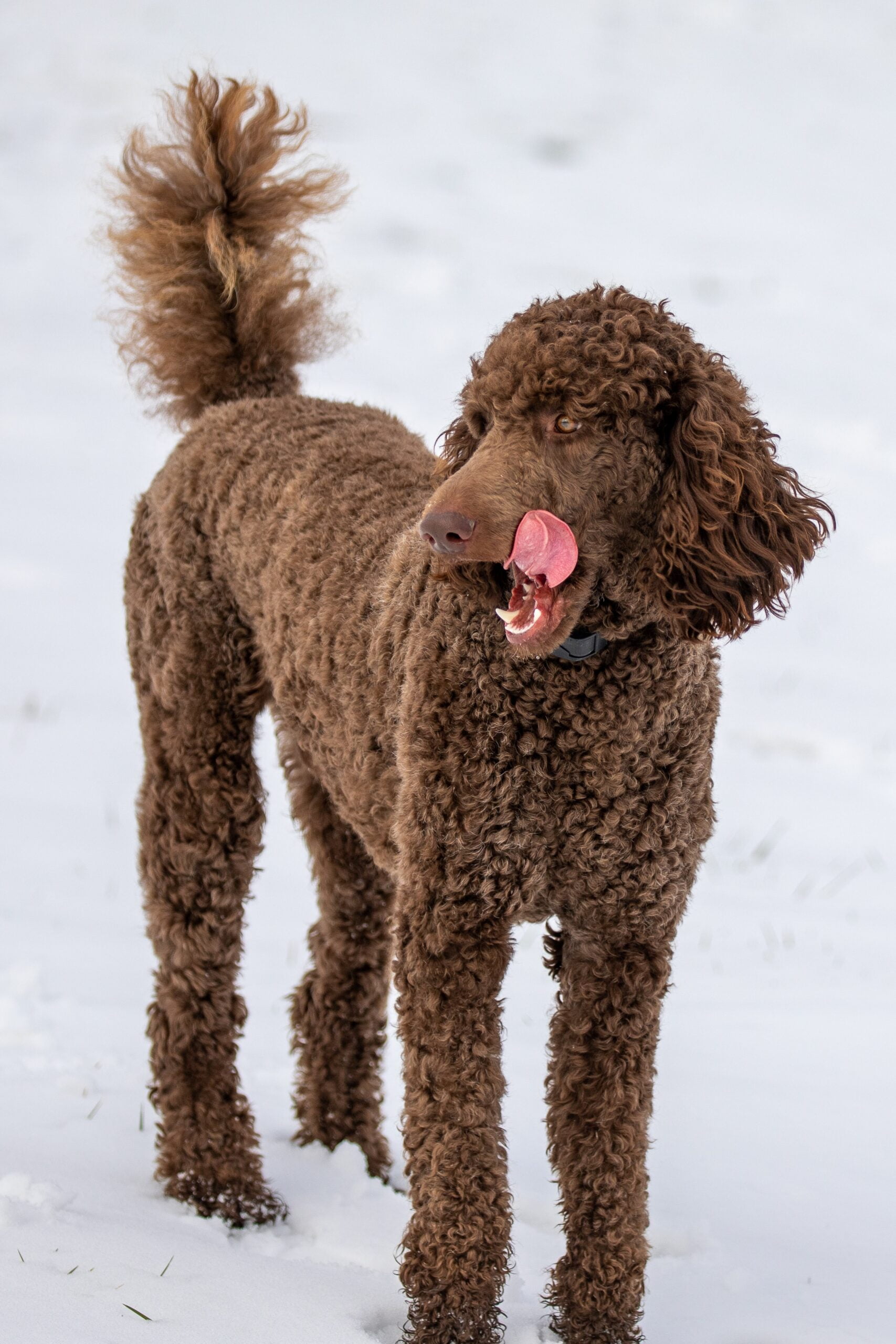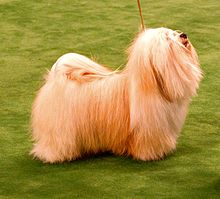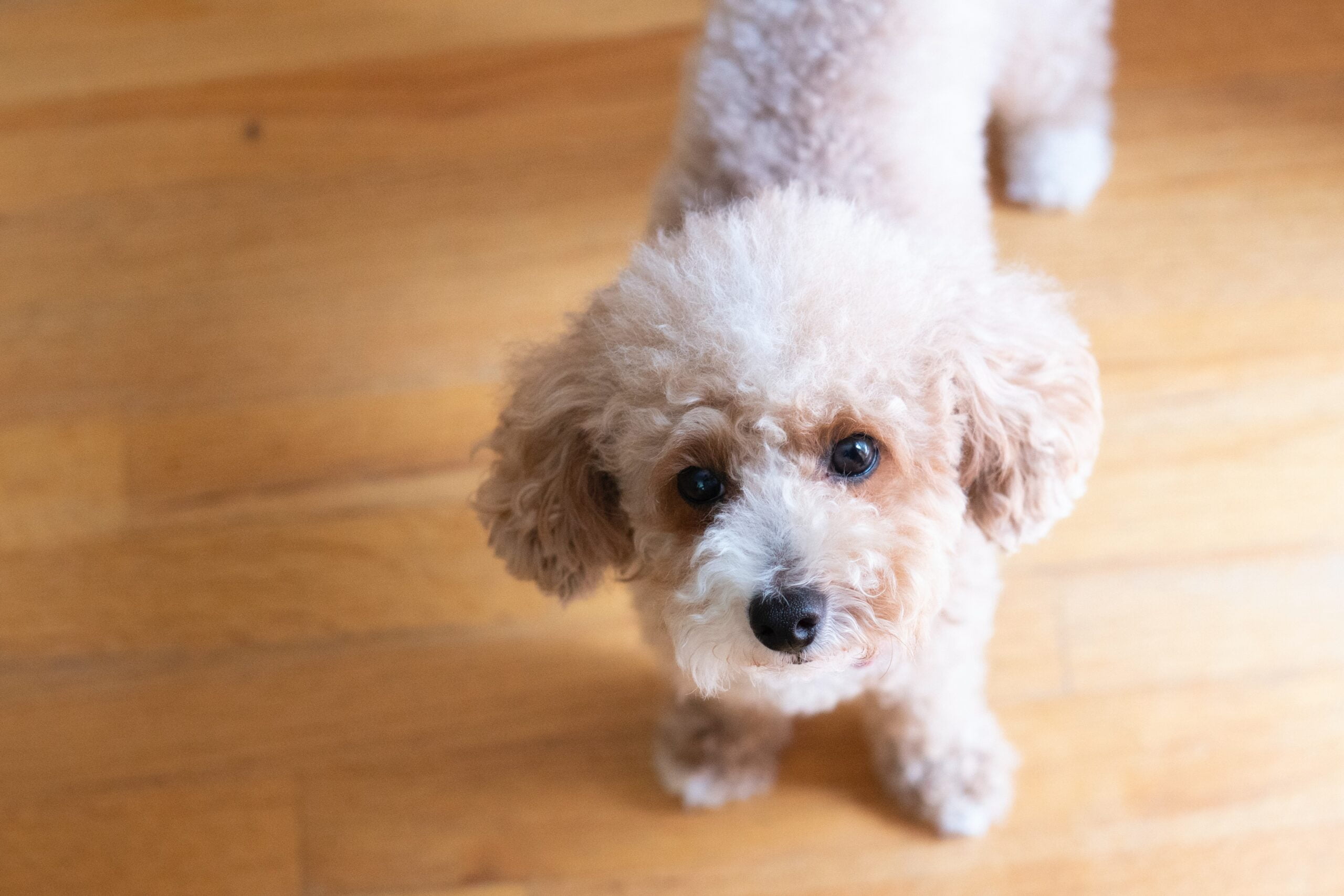
The Poodle, a renowned and versatile dog breed, captivates with its distinctive appearance and intelligent demeanor. Originating in Germany, the breed comes in three sizes—Standard, Miniature, and Toy—each with its own unique charm. Initially bred as water retrievers, Poodles showcased their exceptional swimming abilities and intelligence. Over time, they evolved into elegant companions and performers. Their hypoallergenic, curly coat not only adds to their allure but also reduces shedding. Beyond their refined appearance, Poodles are celebrated for their remarkable intelligence and trainability, making them adept at various activities, from obedience and agility to therapy work. Their playful and alert nature, coupled with a strong bond to their human companions, ensures they excel in both family settings and competitive arenas. Poodles’ multifaceted qualities have made them a cherished breed that effortlessly combines elegance, intelligence, and companionship.
The Toy Poodle is a member of the AKC Toy Group.
Breed Characteristics
| Dog Breed | Toy Poodle |
| Breed Popularity (AKC) | 5 |
| Country of Origin | France |
| Personality | Intelligent, active, affectionate, hypoallergenic |
| Life Expectancy | 10-18 yrs |
| Height | 10-10 in |
| Weight | 4-6 lbs |
| Color | White, Black, Brown, Apricot |
| Coat | Curly, non-shedding |
| Shedding | Infrequent |
| Grooming | Specialty/Professional |
| Health Problems | Hip dysplasia, epilepsy, bladder stones |
| Trainability | Eager to Please |
| Exercise Needs | Regular Exercise |
Toy Poodle History
The Toy Poodle, like other Poodle sizes, has its origins in Germany but was popularized and further developed in France. The breed’s initial purpose, back in the 16th century, was to serve as water retrievers. The word ‘poodle’ comes from the German ‘Pudel’, which means ‘to splash in the water’. Toy Poodles were bred down from their larger counterparts to cater to the urban elites’ demand for a smaller, companion-sized version of the breed.
Temperament
Toy Poodles are a bundle of personality in a small package. Their intelligence is commendable, making them highly trainable. Though they can be a bit reactive, early socialization helps them adapt well to different environments and people. They have a moderate energy level and are affectionate, enjoying the company of their families. Toy Poodles may occasionally exhibit a high-pitched bark, but with training, this can be managed. They’re generally friendly with children and other pets, but their small size requires gentle handling.
Remember, while breed traits provide a general idea, individual dogs can have personalities that differ from the breed standard. Always spend time getting to know the dog and ensure their needs and temperament align with your lifestyle.
Grooming Requirements
Toy Poodles have curly, hypoallergenic coats that don’t shed, making them ideal for allergy sufferers. However, this also means they require regular grooming to prevent their fur from becoming tangled and matted. Regular brushing and monthly baths with a gentle dog shampoo are essential. Due to their small size, care should be taken during bathing. They also require regular nail trimming and ear checks.
Toy Poodle Health
Toy Poodles, living 12-15 years, require routine vaccinations. They can be prone to certain hereditary conditions like Legg-Calve-Perthes disease and patellar luxation. Dental care is vital as smaller breeds are often prone to dental issues. A diet rich in nutrients, with a focus on dog food suitable for smaller breeds, is recommended.
Exercise Needs
While Toy Poodles may be small in size, their energy levels are commendable. Regular walks, playful bonding sessions, and moderate playtime are ideal for their exercise needs. They might not require the extended exercise sessions of larger breeds but engaging them in fetch or agility, on a scale suitable for their size, can be both fun and beneficial.
Training
Don’t be fooled by the Toy Poodle’s diminutive size; they’re sharp and spirited. Obedience training can start early, as they’re quick to grasp commands and showcase their intelligence. Socialization helps in curbing any potential behavior problems and makes them more adaptable to varied surroundings. Crate training provides them with a sense of security, and with their keen intellect, potty training becomes a relatively straightforward endeavor for most owners.
Toy Poodle Pictures
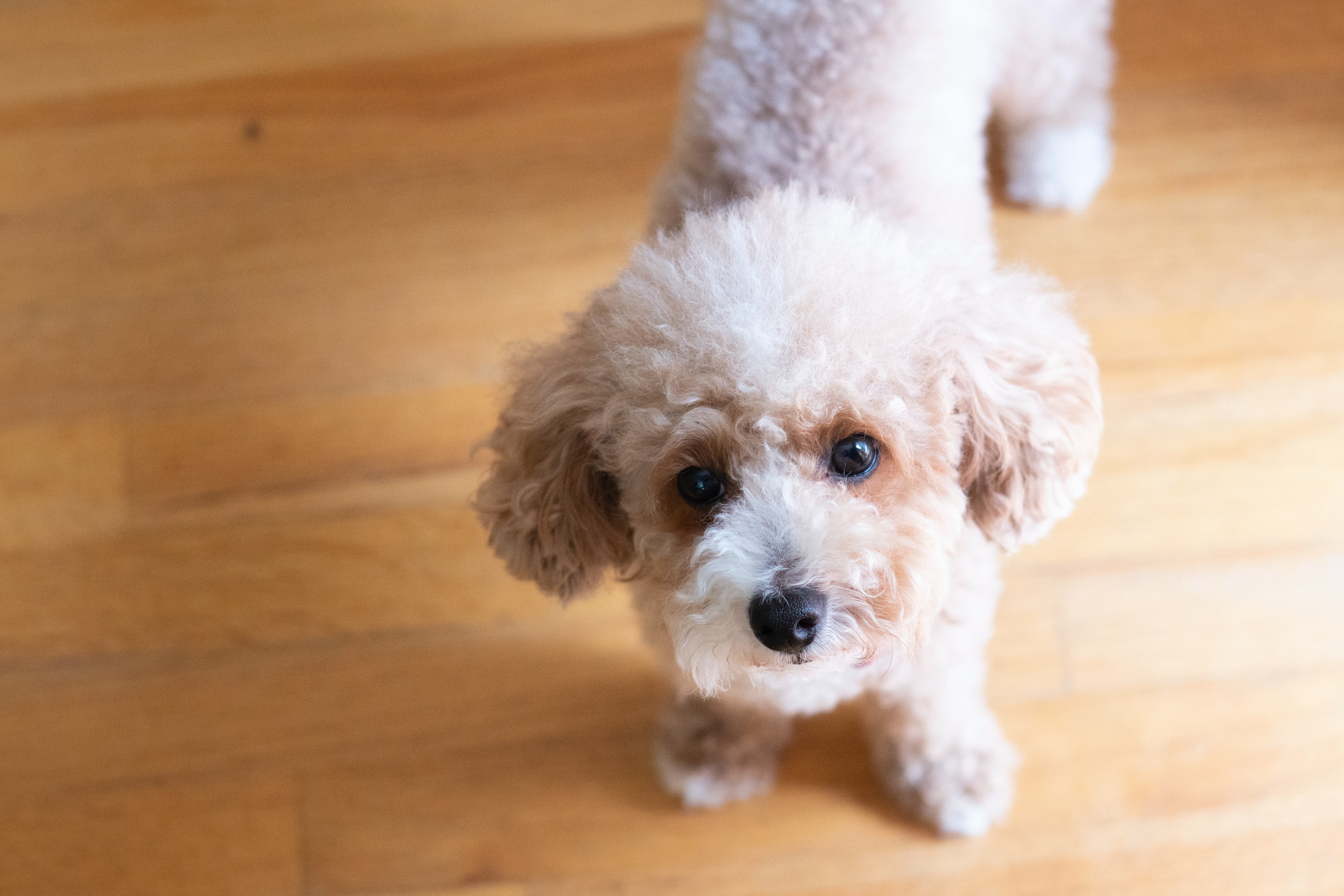
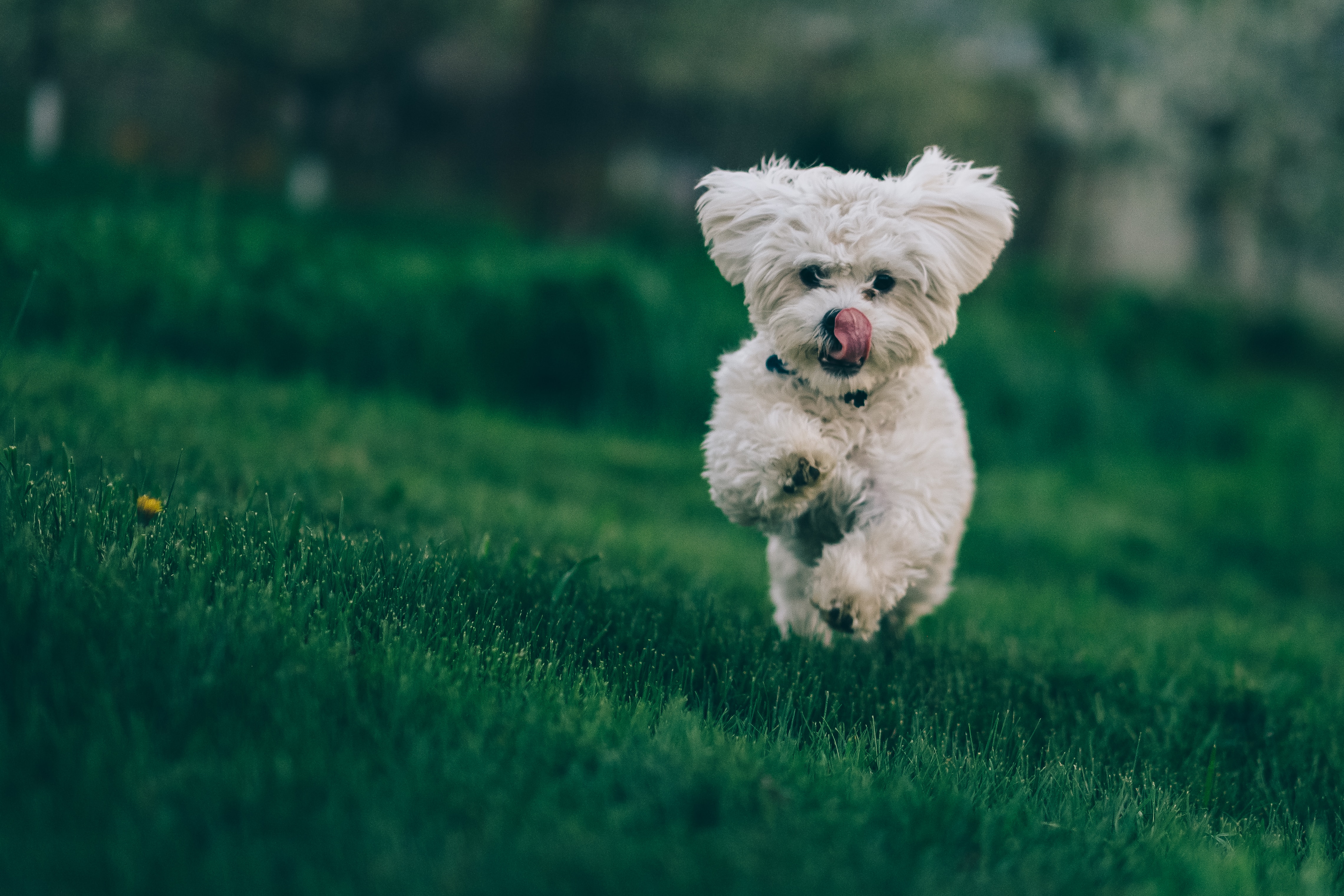
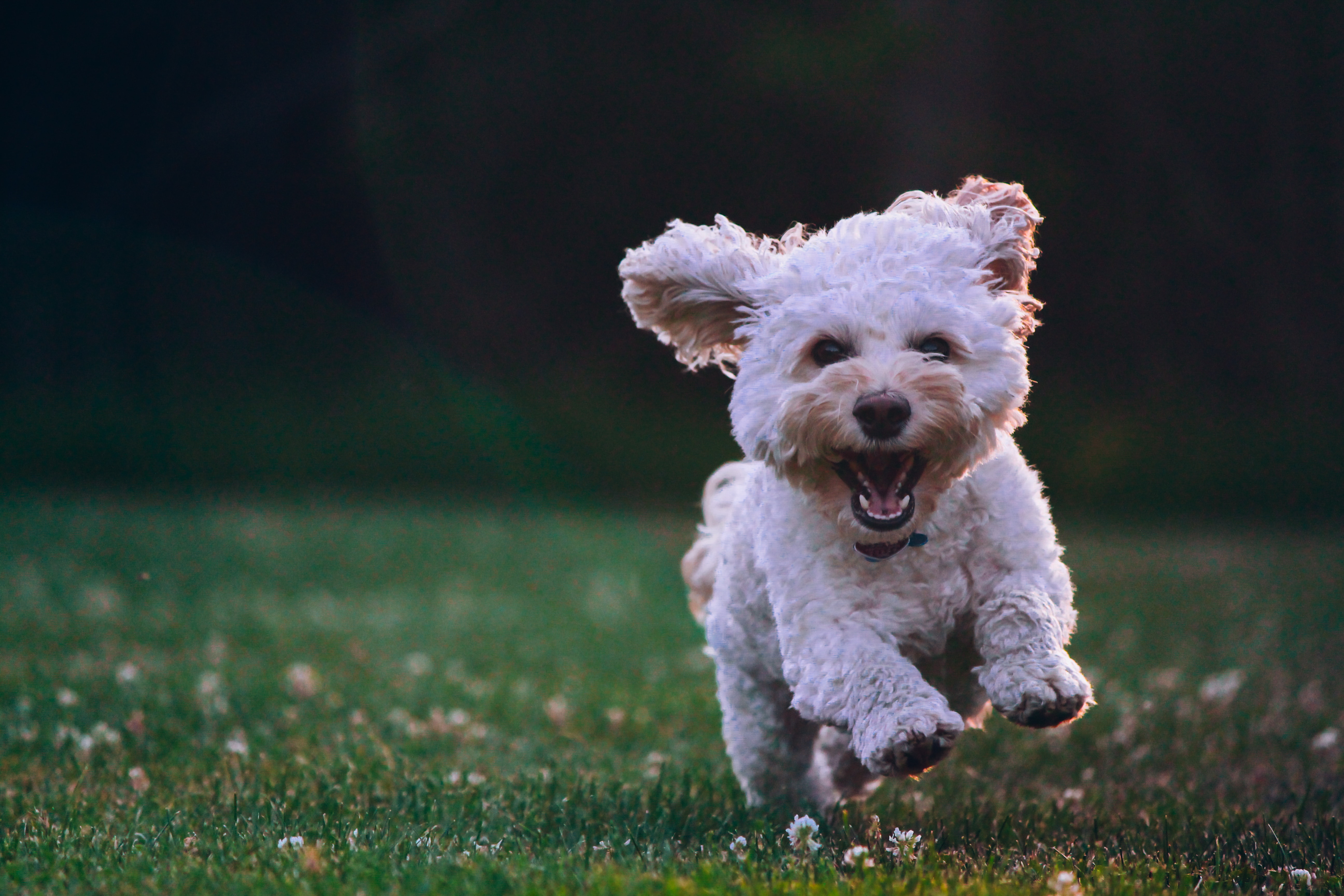
Related Dog Breeds
More Dog Resources
Are you thinking about getting a puppy? Make sure to check out our list of important questions to ask before you adopt a puppy.
We also have many resources to help, from naming your puppy to socialization resources and training tips.
Take me back to the Ultimate Guide to Dog Breeds

